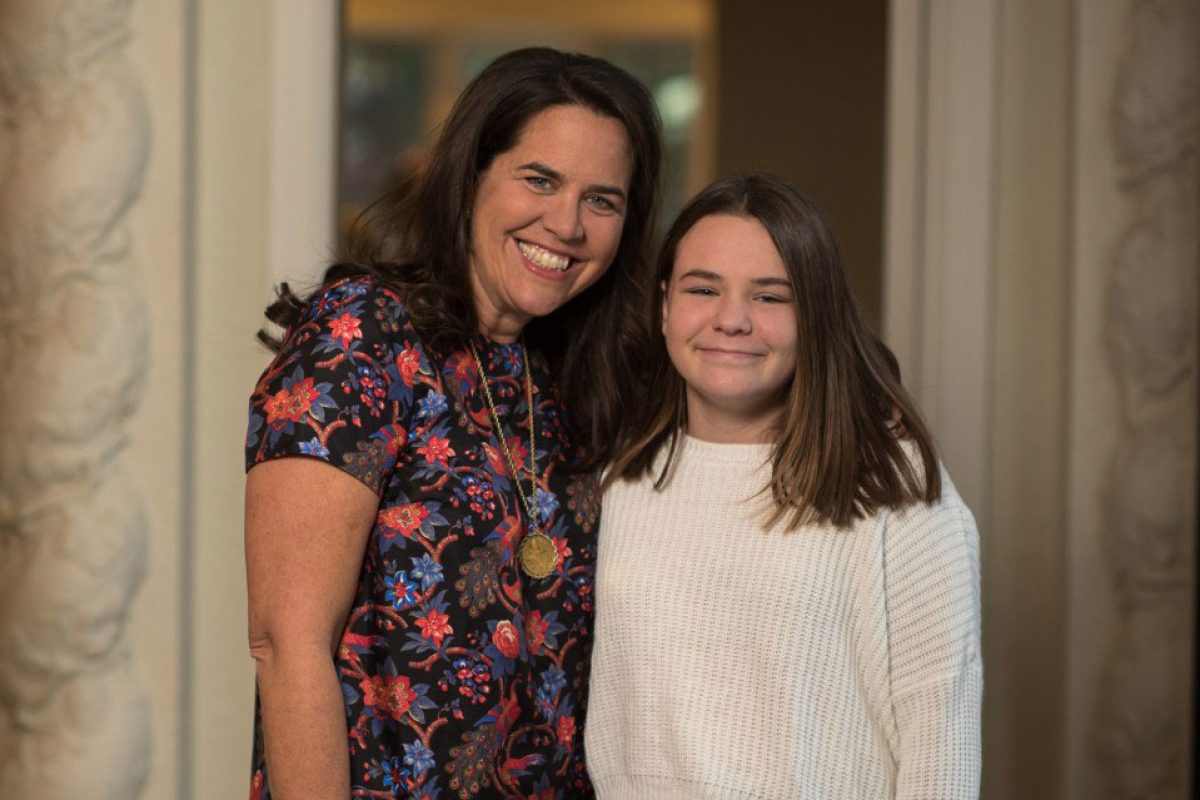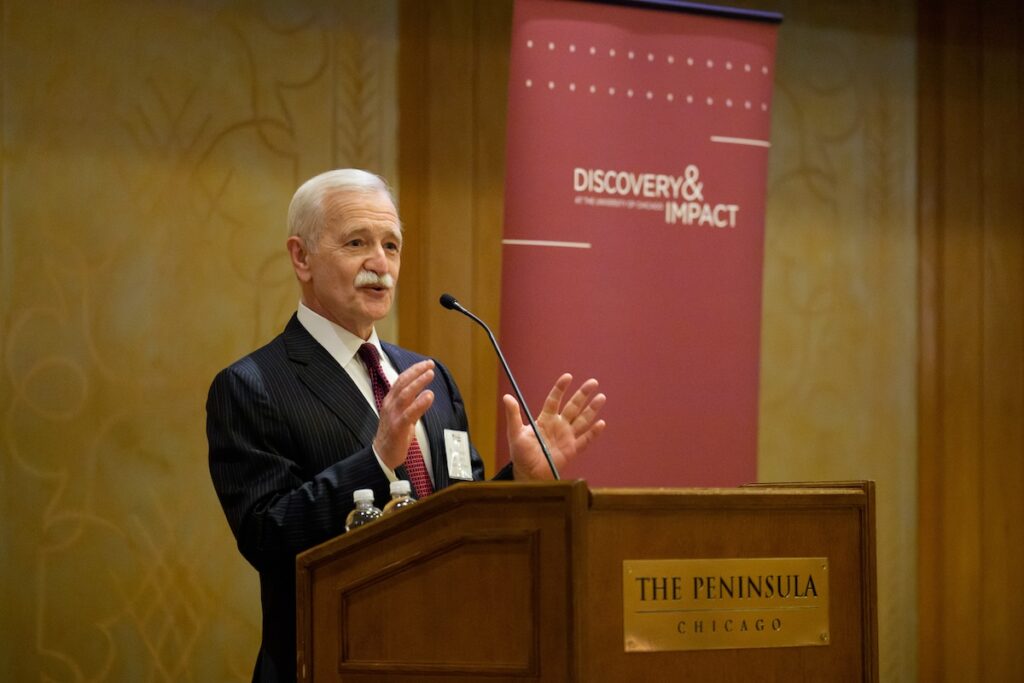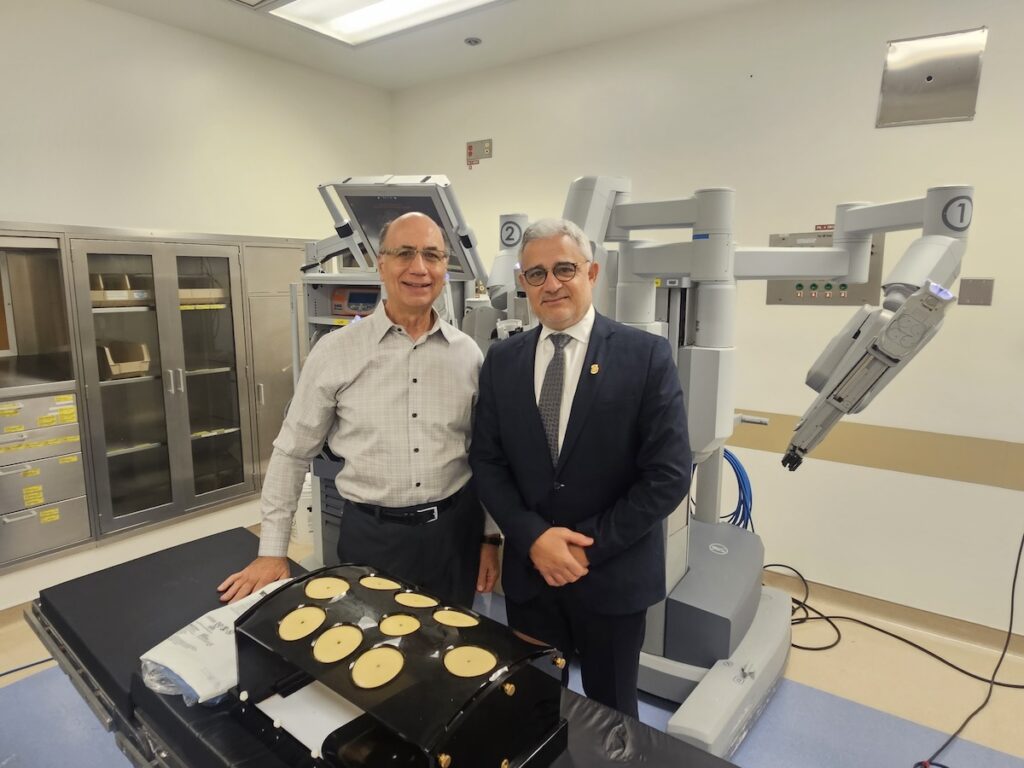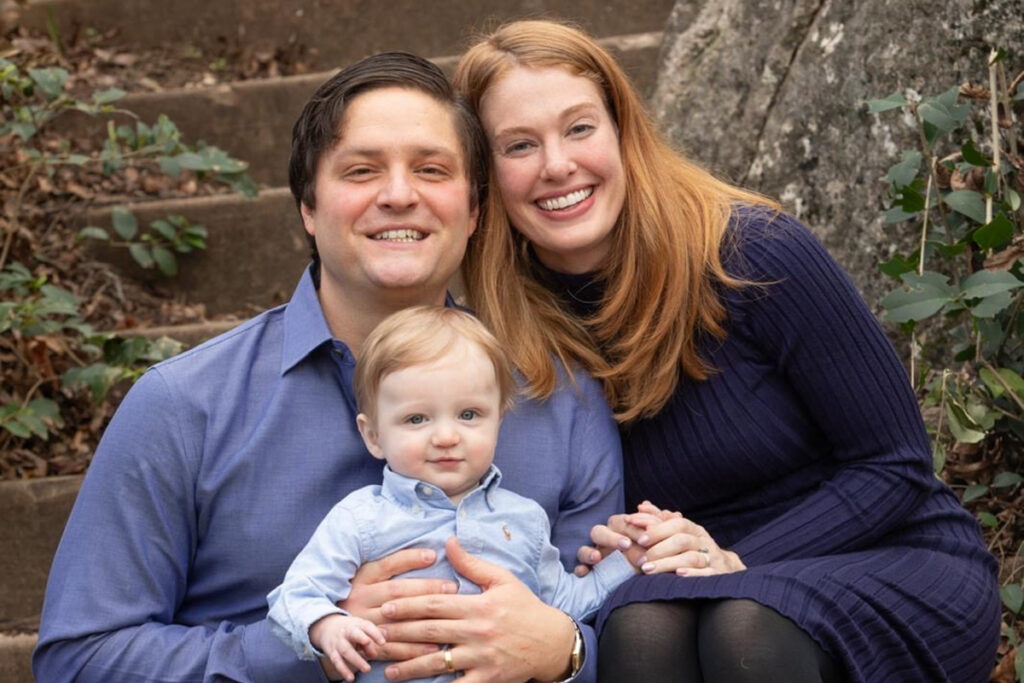Diagnosed with type 1 diabetes at 13 months, Maggie McNally, now 13 years old, knows the ins and outs of managing her condition. That’s not to say it’s easy. Type 1 is an insulin-dependent form of diabetes that has no cure. The eighth-grader must continually monitor her carbohydrate intake, blood sugar level, and insulin dosing. It’s a complex equation that requires frequent revisions to achieve a healthy average blood sugar level.
When Maggie was little, her parents, Alison and Drew McNally, managed her diabetes. With a toddler who couldn’t express the feelings of “going low” — a potentially dangerous state when blood sugar plummets — or when her blood sugar was too high, they had to be vigilant. They also needed ready access to a care team.
At the University of Chicago Medicine Kovler Diabetes Center, the care team includes certied diabetes educators who, working with physicians, help patients confidently self-manage their condition. Certified diabetes educator Amy Hess Fischl advised Maggie’s parents on bringing into balance the many factors involved in their daughter’s diabetes management.
Today, Hess Fischl helps the young teen fine-tune dosages programmed into her insulin pump and buoys her confidence through the ups and downs of dealing with the condition.
“Even when I have bad numbers, Amy is not disappointed,” Maggie said. “She just makes it better and makes me feel good.”
Maggie’s 4-year-old cousin, Teddy McNally, was diagnosed with type 1 diabetes when he was a baby and is also a Kovler Diabetes Center patient. For Teddy’s parents, Jodi and Gray McNally, Hess Fischl also has been an essential part of their journey.
“Diabetes educators have a proven impact in helping people achieve better glucose control and reduce their risks of complications,” said Louis Philipson, MD, PhD, the James C. Tyree Professor in Diabetes Research and Care, director of the Kovler Diabetes Center, and the McNallys’ physician. “Yet, with diabetes sharply on the rise, there are too few of them to meet the demand for services. We need to support more highly skilled health professionals in becoming certified diabetes educators.”
Recognizing this need, the McNallys — Alison and Drew, Jodi and Gray, and their extended family — have given generously to establish the McNally Family Certified Diabetes Educator Program at Kovler Diabetes Center. The program provides a new platform for preparing diabetes educators for certication.
“With this new pipeline of diabetes educators coming through the program, Kovler Diabetes Center will be even more prepared to help people with all types of diabetes better manage their disease and health,” Philipson said.
Gray McNally sees the McNally Family Program as a way to address the shortage of people like Hess Fischl and “give the newly diagnosed immediate help in navigating the complex, new world they find themselves in.”




